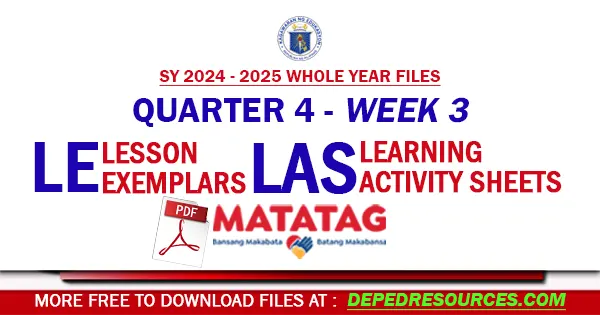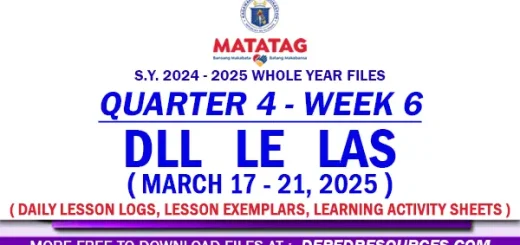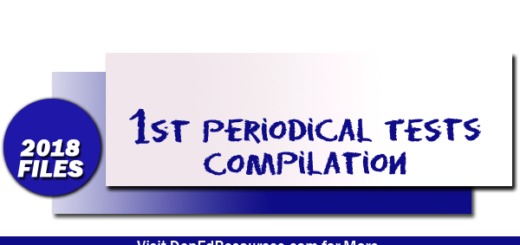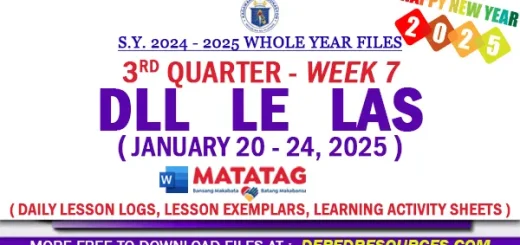Quarter 4 Week 3 Lesson Exemplars (LE) and Learning Activity Sheets (LAS) SY 2024 – 2025
What is a Lesson Exemplar (LE)?
A Lesson Exemplar is a structured instructional guide that outlines how to teach a lesson effectively. It acts as a model for teachers ensuring students build their knowledge progressively. In music education, lesson exemplars assist teachers in structuring lessons by demonstrating how skills and understanding should develop at each stage. During national consultations, teachers highlighted the need for exemplars to clarify the progression of musical concepts especially when schools lack essential resources. For instance, when teaching the pentatonic scale without instruments, exemplars can suggest alternative strategies and activities.
In drama and dance, many teachers felt uncertain due to limited familiarity with the curriculum. As a result, they often hesitated to use draft exemplars. Teachers request clearer guidance including step-by-step instructions and specific indicators of student achievement. Similarly, in visual arts, teachers needed support in transferring skills across different mediums and mastering complex techniques such as perspective and watercolor blending.
Lesson exemplars are essential in all subjects as they provide a structured approach to teaching and learning. They help teachers understand skill progression, evaluate student performance accurately and apply concepts across different topics, ultimately improving the overall quality of instruction.
What are Learning Activity Sheets (LAS)?
Learning Activity Sheets are structured tools designed to facilitate student learning through guided exercises. These sheets support knowledge retention, problem-solving and critical thinking by incorporating various learning approaches. They can be classified into information-focused, procedure-focused, thinking-focused and exploratory worksheets.
Information-focused worksheets prioritize fact memorization and recall. These require students to repeatedly write numbers, multiplication tables, or scientific properties. They reinforce knowledge by testing comprehension of textbook concepts such as planetary characteristics or environmental phenomena.
Procedure-focused worksheets focus on step-by-step problem-solving. These are commonly used in math and science to guide students from simple to complex tasks. For example, an addition worksheet may begin with single-digit sums before progressing to multi-digit operations involving carrying. These worksheets help students build mastery in applying learned procedures.
Thinking-focused worksheets encourage students to analyze and apply their understanding. They include word problems, critical analysis tasks and activities with multiple solutions fostering independent reasoning and deeper comprehension.
Exploratory worksheets promote creativity and self-expression. They may involve reflective writing, open-ended prompts or storytelling exercises that encourage independent thought and deeper engagement with the material.
Learning Activity Sheets provide a structured approach to learning that supports different cognitive processes enhancing both foundational knowledge and higher-order thinking skills.

 Learn about the information we collect and how it's used.
Learn about the information we collect and how it's used. Discover how we protect your data.
Discover how we protect your data. Understand your rights and choices regarding your personal information.
Understand your rights and choices regarding your personal information.














